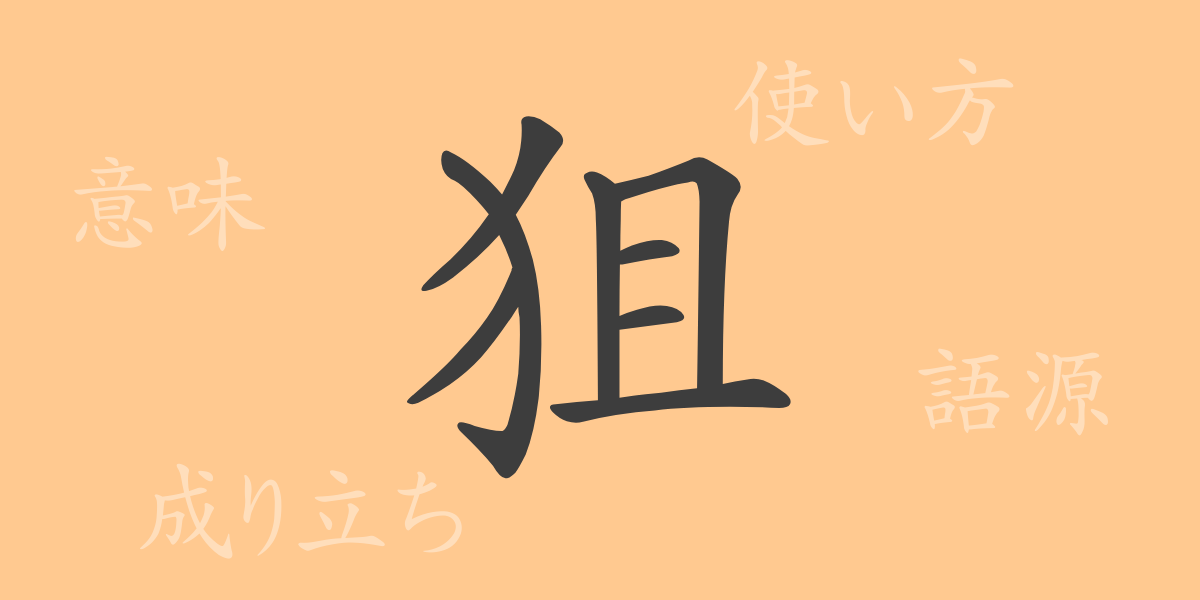Japanese is rich with expressive Kanji characters, each holding unique historical significance and deeply rooted in the everyday lives of Japanese people. In this feature, we focus on the common Kanji “狙” (ソ), exploring its origins, meanings, usage, as well as phrases and idioms derived from this fascinating character.
Origins of 狙 (ソ)
The Kanji “狙” (ソ) is composed of the radical “獣” (ケモノヘン), meaning beast, combined with “且” (シカ), suggesting the act. Originally in ancient China, 狙 referred to a monkey and depicted the action of a monkey targeting something. This character evolved to generally mean “to aim” or “to target” from the action of a monkey aiming.
Meaning and Usage of 狙 (ソ)
The Kanji “狙” (ソ) primarily means “to aim at a target”. It denotes the act of focusing attention on a specific object or goal and is also used metaphorically. For instance, in sports or games, aiming for victory or points, or in business, targeting success or profit.
Readings, Stroke Count, and Radical of 狙 (ソ)
Here are the basic details about the Kanji “狙” (ソ):
- Readings: The on’yomi (Sino-Japanese reading) is “ソ” (ソ), and the kun’yomi (native Japanese reading) are “ねらう” (ネラウ) and “ねらい” (ネライ).
- Stroke Count: “狙” (ソ) consists of 9 strokes.
- Radical: The radical is “犭” (ケモノヘン), associated with characters related to animals.
Idioms and Proverbs Using 狙 (ソ) and Their Meanings
There are several idioms and proverbs that include “狙” (ソ), such as:
- 狙撃 (ソゲキ): Sniping, which involves shooting at a distant target.
- 狙い撃ち (ネライウチ): Selecting a specific target to aim and shoot.
- 狙い定める (ネライサダメル): Firmly setting one’s aim on a target.
- 狙いを定める (ネライヲサダメル): Clearly defining an objective or goal and taking action towards it.
Summary on 狙 (ソ)
The Kanji “狙” (ソ), derived from the behavior of a monkey aiming, signifies setting and carefully aiming at a goal or objective. Its usage spans various aspects of daily life and is prevalent in many idioms and phrases. This character symbolizes the focus and determination we embody when striving to achieve our goals.

























